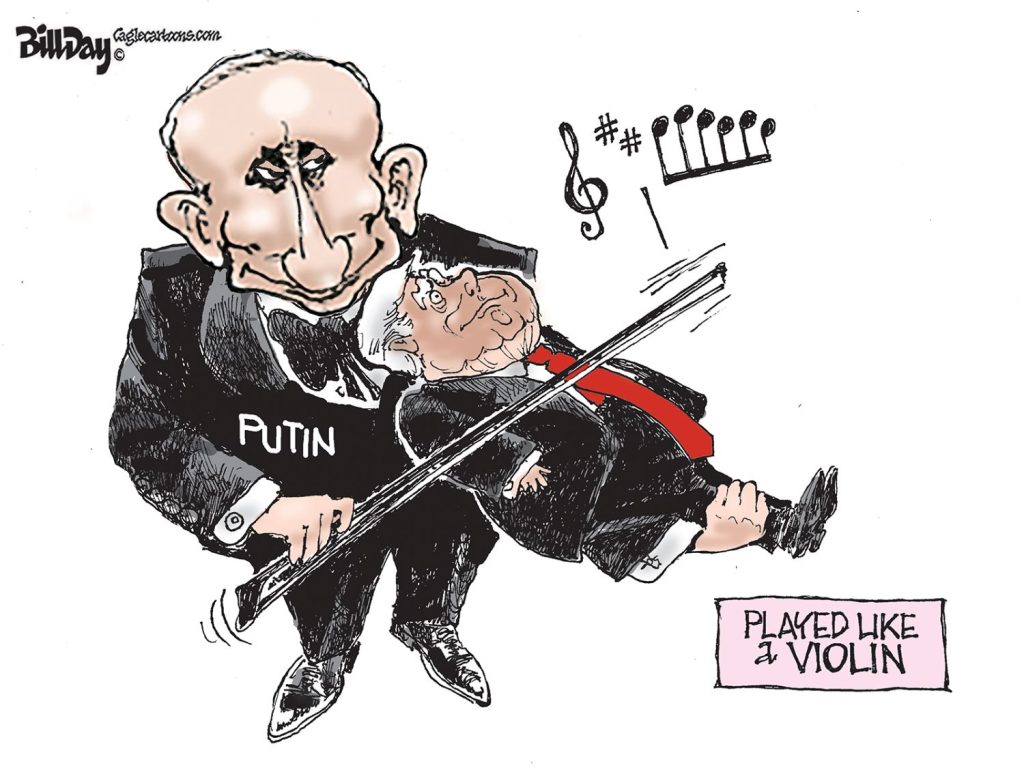No one can say that there’s never any good news in the newspaper.
Last week, the Memphis and Shelby County Industrial Development Board met for the last time.
For years, the IDB has handed out tax waivers to anyone who could fill out the paperwork. The heaps of praise of the lawyer who has gouged more money out of the board members with his dependable threats of companies moving to Mississippi was testament to the board’s failure to balance the best interests of taxpayers as well as business.
We know that we shouldn’t be so hard on the IDB members. After all, it’s not as if they had a real understanding of how regional economies work except for explanations offered by the people attending its meetings, people who had special interest in continuing Memphis and Shelby County’s overreliance on tax freezes.
No Witness for the Defense
There’s been no objective arbiter in these decisions about how to waive taxes. It’s people with the vested interest – the clients, their lawyers, and economic development officials – who were providing the IDB with the “evidence” justifying the tax waivers, evidence which includes lots of anecdotes, fear tactics, and questionable impact statements.
There are suggestions that the IDB overpaid for the kinds of jobs, heavy on the warehousing and distribution industry, being created and the salaries being paid. Last week, at its last meeting, it doled out tax freezes of $21.8 million for 259 jobs, or $84,256 for each new job. Yes, we know that the PILOT to McKesson didn’t create any new jobs but it allegedly saved them under yet another loosening of tax freeze policies to give them to companies who just promised to keep the same number of jobs in our community.
By way of comparison, Toyota got $148,000 in incentives per job in 2007 for its $1.3 billion plant and 2,000 jobs in Tupelo, and in Franklin, Tennessee, Nissan got $151,000 per job for its North American headquarters and 1,300 jobs.
Hoping for an EDGE
But hope springs eternal.
We’re hoping that the members of EDGE, the new public umbrella economic development group that is replacing the IDB, will take a fresh look at tax freeze policies and procedures, bring a fresh perspective to these decisions, will bring more curiosity to get a full picture, and will insist on a more balanced economic plan that ultimately won’t measure success by how many payments-in-lieu-of-taxes (PILOTs) are approved but in how few.
That’s why the hiring of EDGE’s first executive director is so crucial Memphis and Shelby County. It’s a valuable chance to inject some new thinking into our economic development planning and to shake up business as usual.
For 30 years, our government and economic development officials have said with conviction that we have no choice but to dole out tax freezes because of our unskilled workforce. In the same period of time, China has managed to turn its entire economy upside down and reduce its poverty rate by extraordinary amounts. If an entire country can be turned around, surely we’re up to the task for building a future built on quality rather than cheapness.
Dusting Off The Report
Little has changed since the IDB tax freeze policies were criticized by everyone from pro-business Forbes magazine to university researchers, and most of all, by city and county governments’ own consultants, URS Corporation and NexGen Advisors, who called for major overhaul of the program in its 97-page report issued December 1, 2005. We should have known what was coming when it took more than a year for local government to get around to voting on reforms to the PILOT program.
Ultimately, the only outside assessment of the city and county policies on tax freezes – an assessment that recommended common sense and reasonable reform – was forgotten almost before it was officially submitted for consideration. Although some changes were approved, the full impact of the well-thought-out report was never realized, and campaigns to water down the changes began almost before the ink had dried on the government resolutions.
Forbes magazine held up our PILOT program as the poster child for tax incentives run amok: “Targeted tax cuts aimed at attracting particular employers are bad policy. For decades now targeted tax incentives have been a favorite elixir of state and local politicians in depressed communities. But targeted tax incentives don’t spur real growth. Quite the contrary…tax incentives are inevitably financed at the expense of established businesses. Today’s winner of a targeted tax break is tomorrow’s victim of a broad increase in business taxes.”
As for the city-county consultants, they recommended the “but for” test – a common sense idea that when a company asks for a tax freeze, it must be determined that “but for” the public incentive, the project would never materialize.
Rhetoric Over Reason
The consultants wrote: “The current matrix approach (the score sheet now being used to award tax freezes and set their terms) for awarding PILOTs should be abandoned and replaced by a ‘but for’ test or the true economic need of the project.”
This was what was always missing from the PILOT process. Instead of an emphasis on facts, there was an emphasis on rhetoric: “The company will move to Mississippi if it doesn’t get the PILOT” or “This company is looking at locations in Indianapolis right now,” or “This company wants a sign from government that Memphis values its presence.”
In truth, this strict “but for” test was straightforward and encouraged good stewardship of scarcer and scarcer tax dollars. The consultants define “but for” as a business investment that isn’t reasonably expected without the public tax freezes, and it can be proven by a “gap analysis, a competitive cost analysis for competing sites, or a combination of the two,” the report states.
“The establishment of a ‘but for’ test is the whole premise of any public investment or the need for it from a logical, moral and legislative standpoint,” the report said. “Most, if not all, business incentive programs across the country imply a ‘but for’ test in their intent and enabling legislation.”
Creating a Community of Success
In the end, the new EDGE board will have to develop an economic development plan that positions our community strongly for the brave new world that will exist after the recession. It’s not about low-skill, low-wage jobs.
It’s about, as Professor John Eger said: “The effort to create a 21st century city is not so much about technology as it is about jobs, dollars and quality of life. In short, it is about organizing one’s community to reinvent itself for the new, knowledge-based economy and society; preparing its citizens to take ownership of their community; and educating the next generation of leaders and workers to meet these global challenges…At the heart of this effort is ultimately defining a ‘creative community.’”





The PILOT program has been a “feel good elixir” for many years. It’s almost as if a warehouse developer or company wanted a pretty gift basket. The actual tax freeze means very little to a business’ bottom line (except maybe a speculative developer of a warehouse, which produces few jobs and takes up a lot of land). If the warehouse goes to Desoto County, what difference does it make?
And as you note the tax freeze (in quantities handed out in Shelby County) actually raise the burden on existing businesses, not to mention our residential properties in Shelby County.
As for jobs: most of the new employees will probably live and shop outside Shelby County anyway, thus further eroding the overall tax base.
The use of property tax freezes to the extent used in Shelby County is stupid. And as noted by Chamber of Commerce officials, “our taxes are not high enough to offer incentives”. Duh!
The hollowing out of Memphis inside the beltway (I-240 not I-269) is our highest priority to correct. The tax incentives and infrastructure spending outside the inner beltway just hasten the leap frog sprawl, which points Memphis toward a Detroit-like future even with the annexation reserve areas.
I too hope EDGE can reform economic development efforts. We should stop letting the Chamber of Commerce be the de facto economic development planning agency.
I incorporated the Industrial Development Board and acted as its counsel from its formation in 1976 until 1982. The board was formed to take advantage of then available interest breaks on tax exempt loans and bonds. We had a very strict policy of no payment in lieu of taxes subsidies for all the reasons outlined in this post. Downtown was a different situation and the Center City Revenue Finance Corporation was formed for the specific purpose of supporting such arrangements to encourage movement downtown. The downtown effort was a great success.
Unfortunately the IDB lost its way over the years with disastrous results. Real economic growth comes from making Memphis a place where its profitable to do business and young people want to live. PILOTS rarely impact either of those goals for the types of knowledge based companies we need to attract to move Memphis off the bottom of the economic pyramid and generate jobs that would encourage our young people to stay here and work to build a great city of the bluffs. At this point, fiscal prudence in local government would go a lot further in convincing companies and taxpayers to take the risk of relocating to our community.
John: Thanks so much for the valuable insight and the perfect context for measuring whether PILOTs have been successful. We appreciate your comments.
I hope that the new EDGE board will start focusing more on fostering–and, yes, offering incentives if necessary–to local entrepreneurs and start-ups.
Ve Must Force the fleeing suburbanites to return to the inner Zity before it iz too late!
already the forces of Darkness are spikking of forming new
Zuburban School Zystems, spending our well dezerved tax dollars for their own purpozes rather than allow us to zeize them to make up for decades of the double tax!
Ve must shtop dis new highway talk and dizallow any new PILOTS outside of our crumbling beltway area!
Ve must offer shartup dollahs to de vig shop and payday loan
bankers to enzure they do not zuffer and keep our elected offizials in der manner in which zey have becomes accuztumed.
I shall perzonally walk up to dis EDGE thing and gladly be the Virst to jump off!
We weren’t talking about disallowing PILOTs outside the beltway. The PILOTs hurt suburban taxpayers too.